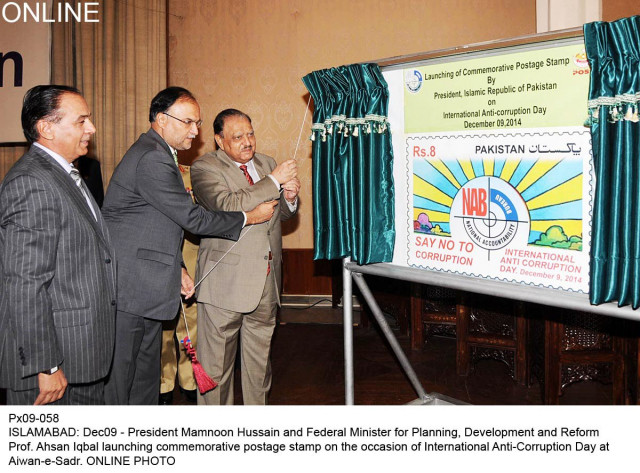United we prosper: ‘Regional cooperation critical for development’
Speakers call for joint response to disasters, illiteracy, inequality and poverty in South Asia.

United we prosper: ‘Regional cooperation critical for development’
“Regional governments should not only focus on economic growth but also address the core issues of inequality, poverty, social justice and promote peace,” President Mamnoon Hussain said.
He was addressing the opening session of the three-day conference on “Pathways to Sustainable Development,” organised by the Sustainable Development Policy Institute (SDPI).
“South Asia has achieved impressive macro-economic growth but at the same time income inequality has also risen,” the president remarked.

“We need regional response mechanisms to deal with the climate change issue that is becoming a major threat to economies and societies as is evident from the recent floods,” said the president.
Minister for Planning and Development Ahsan Iqbal said South Asia is home to the most poor and malnourished children in the world. “In fact we have the most ‘uns’ in every field. We know the answers to these problems but cannot translate them into practice,” he said, calling for a K2D approach (from knowing to doing).
“With unprecedented challenges, we need unprecedented collaboration on the issues confronting the region. We believe that Pakistan needs out-of-box solutions to kickstart sustainable development process.”
Iqbal said the old model of democracy was no longer applicable to new aspirations and pointed out to decreasing voter turnout in some developed societies due to voter disillusionment.
The minister called for a collective South Asia Vision 2025. “Instead of throwing mortars on one another, let’s throw mortars on illiteracy, poverty, and hunger in the region.”
United Nations Under Secretary-General and Economic and Social Commission for Asia and Pacific (UN-ESCAP) Executive Secretary Shamshad Akhtar said South Asia had grown below its potential.
“With 40 per cent population below the poverty line, South Asia has the highest concentration of poor people in the world. It also accounts for half of the world’s fatalities due to natural disasters,” said Akhtar, who is also the former governor of the State Bank of Pakistan.
She said South Asia has the potential to bridge the skilled workforce gap in the world but that depends on effective skill development programmes. Akhtar said Pakistan could learn from India’s skill development programme.
SDPI Executive Director Dr Abid Qaiyum Suleri earlier noted that the South Asian countries have changed over the last few years with democratic transitions in Afghanistan, Pakistan, India and Nepal. “Things have changed in less than a decade for the good. Conflicts within and without have eroded the capacity of every South Asian country. We can work in isolation and fail in isolation or we can work collectively and ensure a better future for our people.”
Published in The Express Tribune, December 10th, 2014.



















COMMENTS
Comments are moderated and generally will be posted if they are on-topic and not abusive.
For more information, please see our Comments FAQ